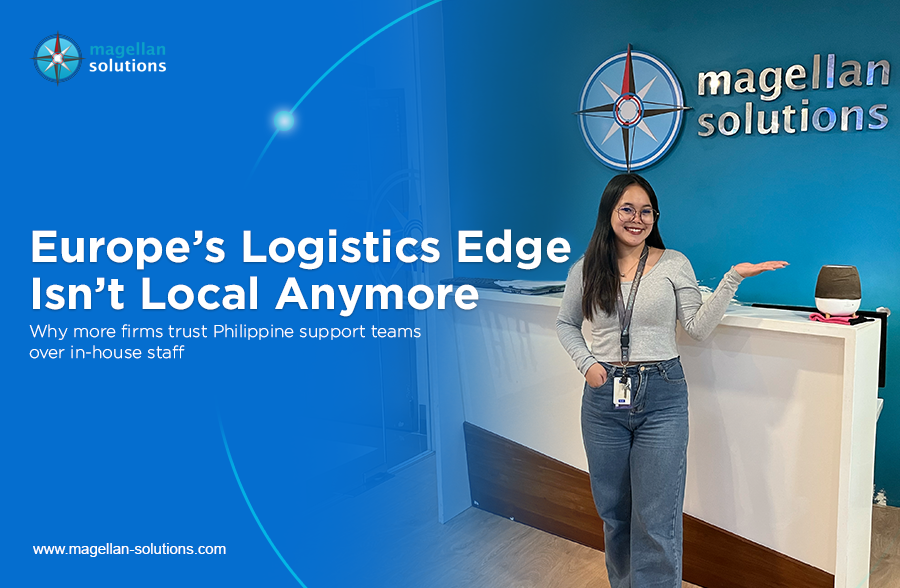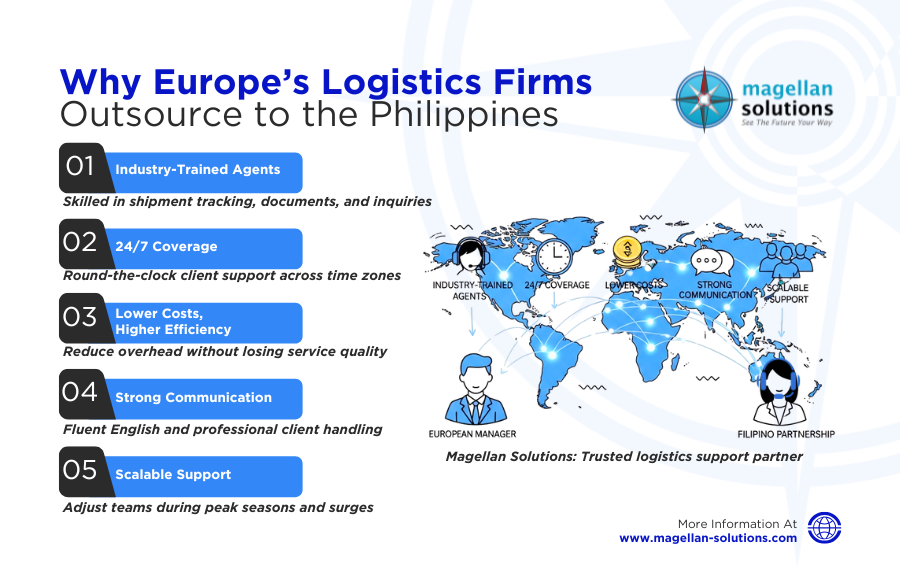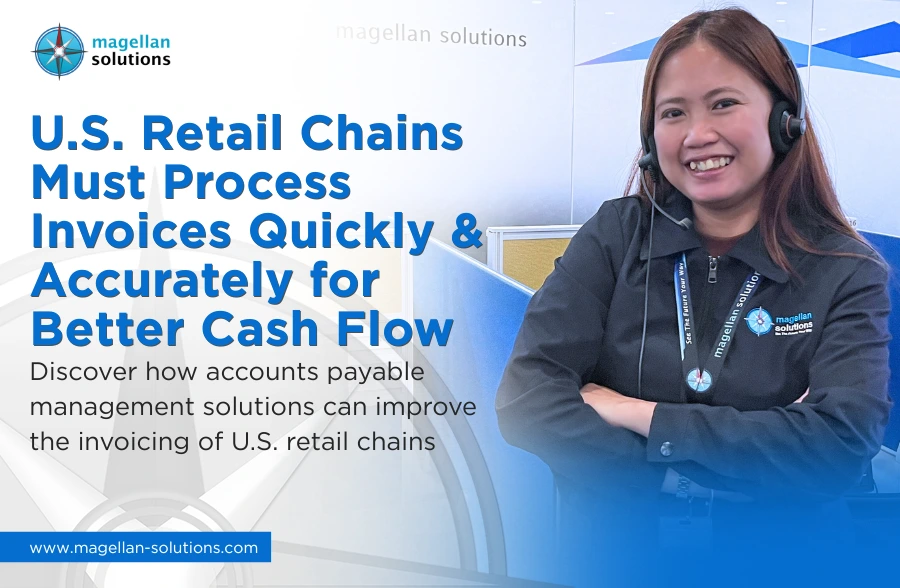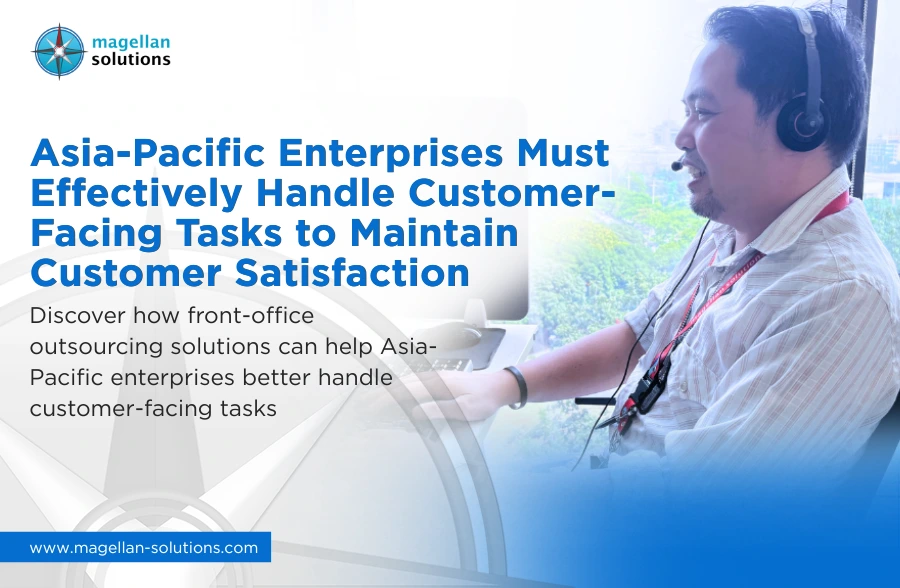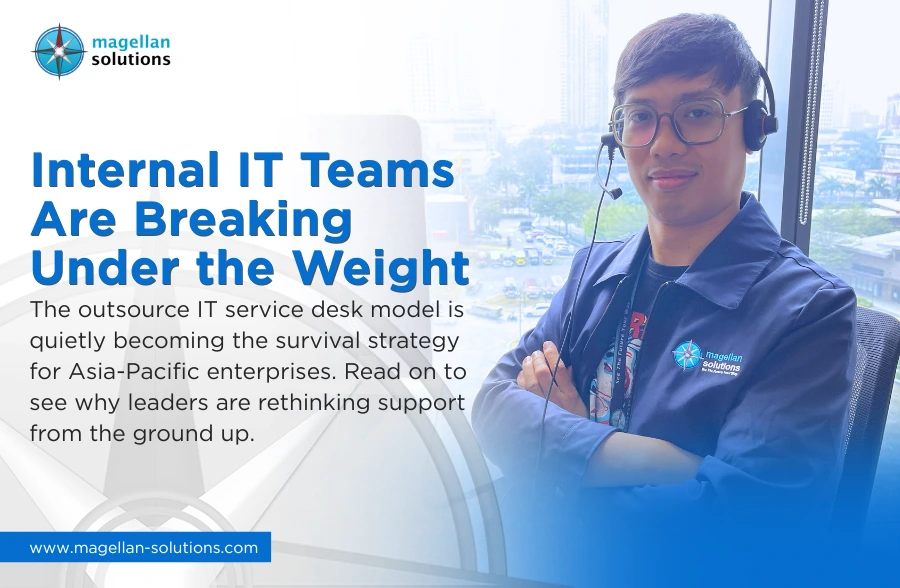Schedule a FREE call with our outsourcing expert now and get a precise quotation that meets your requirements. Don't wait - get started today!
Europe’s logistics sector is under constant pressure to stay responsive. Clients don’t just expect updates—they expect them quickly, across multiple time zones, and without miscommunication. That’s one of the biggest reasons more companies in freight forwarding, shipping, and supply chain management are turning to outsource customer support services as a practical solution rather than a temporary fix.
In recent years, many of these firms have made a strategic move to outsource customer support to the Philippines, where trained specialists are equipped to handle inquiries with accuracy, patience, and efficiency. The approach isn’t about replacing internal teams—it’s about making sure customer-facing communication doesn’t fall through the cracks.
Why Logistics Companies in Europe Look to the Philippines
The logistics industry deals with moving goods across borders, coordinating schedules, and solving problems as they arise. When clients reach out, they’re often asking about urgent cargo updates, delivery times, customs concerns, or documentation requirements. European companies discovered that Philippine-based teams can manage these situations effectively—and at scale.
Around-the-Clock Availability
Logistics rarely operates within a neat 9-to-5 window. Freight moves while offices close, and clients still expect status updates. Time zone differences work to Europe’s advantage when firms outsource customer support to the Philippines. Teams can cover evening hours, weekends, or holiday surges without burning out local staff.
Talent Familiar with Industry Needs
Support agents in the Philippines frequently receive training specific to logistics and shipping. They’re not just script readers. Many are familiar with documentation protocols, port delays, airway bills, tracking platforms, and terminology used in freight operations. That level of familiarity cuts down on escalation and response delays.
Reduced Operational Pressure
Maintaining an in-house support desk within Europe comes with higher labor costs and staffing constraints. Offshoring allows companies to reallocate resources more strategically—without sacrificing service quality. For some firms, it means they can finally tackle longer-term projects instead of stretching their teams thin.
Communication That Works Across Cultures
Filipino agents generally speak English fluently and are used to dealing with international clients. Their communication style tends to be clear, neutral, and professional—which helps minimize friction when issues arise or clarifications are needed.
Scalability When Demand Surges
The logistics world sees predictable spikes: retail peaks, seasonal imports, holiday freight surges, and year-end deadlines. Being able to scale customer support quickly—without long lead times—has proven valuable for European firms that can’t afford backlogs or unanswered inquiries.
How Outsourcing Fits Into Day-to-Day Operations
When companies decide to outsource customer support services, the work offloaded usually covers more than basic customer calls. It supports the operational backbone.
Real-Time Shipment Information
Clients often ask for updates on arrival times, port clearances, or transit delays. Philippine-based teams can access tracking systems and provide answers on the spot.
Document Clarifications
Questions about bills of lading, customs declarations, or export documentation can slow down processes if no one is readily available to respond. Outsourced support helps avoid those bottlenecks.
Addressing Interruptions and Delays
Unexpected disruptions—weather, labor strikes, traffic congestion, or port backlogs—require timely communication. Offshore support can coordinate with internal departments and relay updates to clients before issues escalate.
Managing Multiple Channels
Today’s inquiries no longer come through one channel. Offshore teams often handle email, chat, phone, CRM platforms, and even messaging apps used by freight partners and distributors.
The Payoff for Europe-Based Firms
For many companies, outsourcing has changed how they manage communication—not just costs.
Faster Customer Response
Support teams dedicated to handling inquiries reduce waiting times and help logistics firms protect their client relationships.
Stronger SLA Performance
Meeting response and resolution targets becomes easier when the support function is well-staffed and properly trained.
Cleaner Workflows
Support teams act as intermediaries between internal operations and customers, preventing miscommunication and freeing core staff from repetitive follow-ups.
More Focus on Strategic Priorities
Internal teams can refocus on growth, compliance, technology integration, or sustainability targets once day-to-day inquiries are handled externally.
Addressing Common Concerns
European firms often hesitate at first—not because they doubt the capability, but because they worry about coordination, data handling, and quality control. Established outsourcing providers in the Philippines are already familiar with these requirements.
Technology Compatibility
Support centers routinely work with platforms like CargoWise, SAP TM, Salesforce, and proprietary tracking systems. Integration and training are part of the onboarding process.
Data Responsibility
Reliable providers adhere to international compliance standards and implement secure protocols to align with EU data regulations.
Structured Onboarding and SOPs
Teams typically undergo client-specific training on workflows, escalation policies, and brand voice before handling live communications.
Performance Reviews and Reporting
Metrics such as ticket resolution time, call quality, and customer satisfaction scores are tracked and shared regularly.
Which Logistics Sectors Benefit the Most?
Several parts of the logistics ecosystem are now actively using offshore support models.
Freight Forwarders
They rely heavily on quick responses regarding cargo movement and documentation. Offshore support keeps communication flowing.
Third-Party Logistics Providers (3PL)
These companies manage warehousing, inventory, and distribution. Outsourced support teams assist clients with order status, inventory availability, and delivery coordination.
Parcel and Courier Services
High-volume inquiries during peak shipping periods can overwhelm internal teams. Offshore support helps manage spikes efficiently.
Maritime and Air Cargo Firms
With high-value shipments and strict timelines, these firms need prompt communication across clients, agents, and carriers.
What’s Shaping the Future of Customer Support in Logistics?
The push toward digital visibility and high service expectations is reshaping how logistics firms manage communication. Companies that outsource customer support to the Philippines are positioning themselves to keep up with industry shifts.
Multichannel, Not Single-Channel
Live chat, email support, and CRM-driven interactions are now the norm—offshore teams are already adapted to these channels.
Automation with a Human Layer
Tools like chat assistants can handle initial queries, but complex issues still require experienced human agents who understand logistics scenarios.
Customer Experience as a Differentiator
Support is now viewed as part of the overall service package—not just a reactive function. Offshore teams allow companies to maintain responsiveness without overwhelming local staff.
Why Magellan Solutions Stands Out
Among outsourcing providers, Magellan Solutions has developed specific expertise in logistics and supply chain support. They understand the communication standards European clients expect and have teams equipped to handle industry-specific queries.
The company offers scalable arrangements, multilingual capabilities when needed, and a structured approach to training and quality control. For logistics firms trying to improve customer responsiveness without expanding internal teams, this kind of partnership can make a measurable difference.
Final Take: A Practical Strategy with Long-Term Value
For Europe’s logistics firms, the choice to outsource customer support to the Philippines isn’t just about managing call volumes—it’s about staying responsive in an industry where timing and clarity matter. It helps streamline operations, maintain strong client relationships, and support growth without stretching teams too thin.
If your company is weighing the idea of outsourcing, it helps to work with a partner that understands your industry’s pace and expectations.
Magellan Solutions has the training infrastructure, technology compatibility, and industry experience to support logistics providers across Europe.
If you’re exploring ways to strengthen client communication without inflating costs or internal workloads, it’s worth starting a conversation. Get in touch with Magellan Solutions today and discover how outsourced customer support services can elevate your operations.




